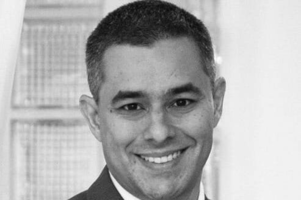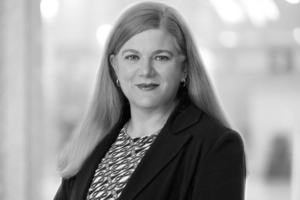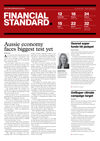What do the best-functioning boards look like?BY KARREN VERGARA | TUESDAY, 17 JUN 2025 7:05AMThe best-functioning boards are future thinkers, understand their ESG responsibilities and are able to show their "battle scars," according to two governance experts. A panel discussing how board members should measure up at the recent Responsible Investment Association Australasia (RIAA) Conference heard from Naomi Edwards, the chair and national director of the Australian Institute of Company Directors (AICD), on what makes a good board that shareholders and customers respect and value. Edwards said that the best-functioning boards are curious, future thinkers, and "are very alive to the changes that are happening societally, economically, environmentally, and digitally". "You cannot be a good board today and just rely on the management packs. You need to go out and talk to your staff, you need to experience your customers' lived experience. You also need to be very, very strong digitally," she said. Most recently, the AICD has reported its AI fluency course to be heavily subscribed. "Every single board member today must be AI fluent and [understand] the language... It's the same as 20 years ago, when everyone had to be able to read a balance sheet," Edwards said. However, she believes that "being alive to the future" is the most important quality a director can possess. "The tempo of change is so fast, the idea that you can just rock up to four or six board meetings and contribute is no longer. Things are happening way too fast for that," she added. Ming Long, a non-executive director of several organisations such as IFM Investors and QBE Insurance, observes the board community to be generally conservative. She urged directors to take the appropriate risks where necessary with long-term conviction in mind. What holds them back is the short term, she said, noting that such risks may not pay off as easily as what directors might expect. "We need to be able to take those risks in the interest of the organisation. That is my concern, that you will bias everything so much more short term," Long said. What is also valuable for boards and the wider organisation are directors with proven "battle scars". "I cannot tell you how important it is to have directors on boards with battle scars to share with the rest of the organisation, 'this is the path forward' or 'avoid those landmines' or 'I've seen this movie before.' They are so important," Long noted. According to the 2025 Edelman Trust Barometer, 68% of Australians believe that businesses lie to them. "The fact that there is this gulf of mistrust, particularly for corporations, stresses me greatly, and I want us to be trustworthy to people," Edwards said. "Businesses are a core underpinning of our ability to survive and grow and work as a country and needed as this government, but if you have that higher level of distrust in our corporate institutions, that is not going to work out well for us in terms of social cohesion..." Related News |

Santos has received a non-binding $8.89 per share cash offer from the XRG Consortium, led by XRG P.J.S.C., a subsidiary of Abu Dhabi National Oil Company (ANDOC), alongside Abu Dhabi's sovereign wealth fund ADQ and US private equity firm Carlyle.
The best-functioning boards are future thinkers, understand their ESG responsibilities and are able to show their "battle scars," according to two governance experts.
While funding for impact startups has broadly declined, those operating in climate, health and people has seen funding levels improve compared to three years ago, according to the Impact Startups Benchmark Report 2025.
Investors have a significant role to play in helping to move the dial on executive remuneration, aiming to increase fairness and reduce inequality.
















